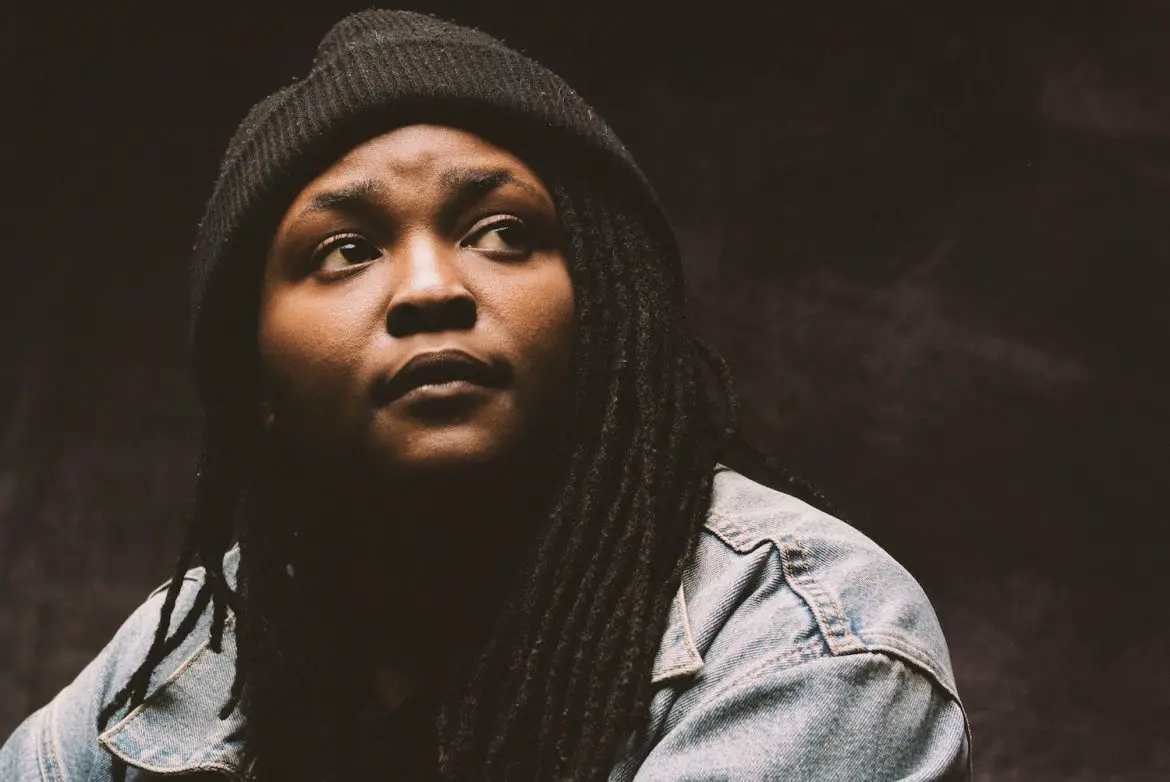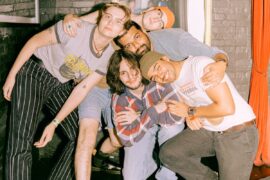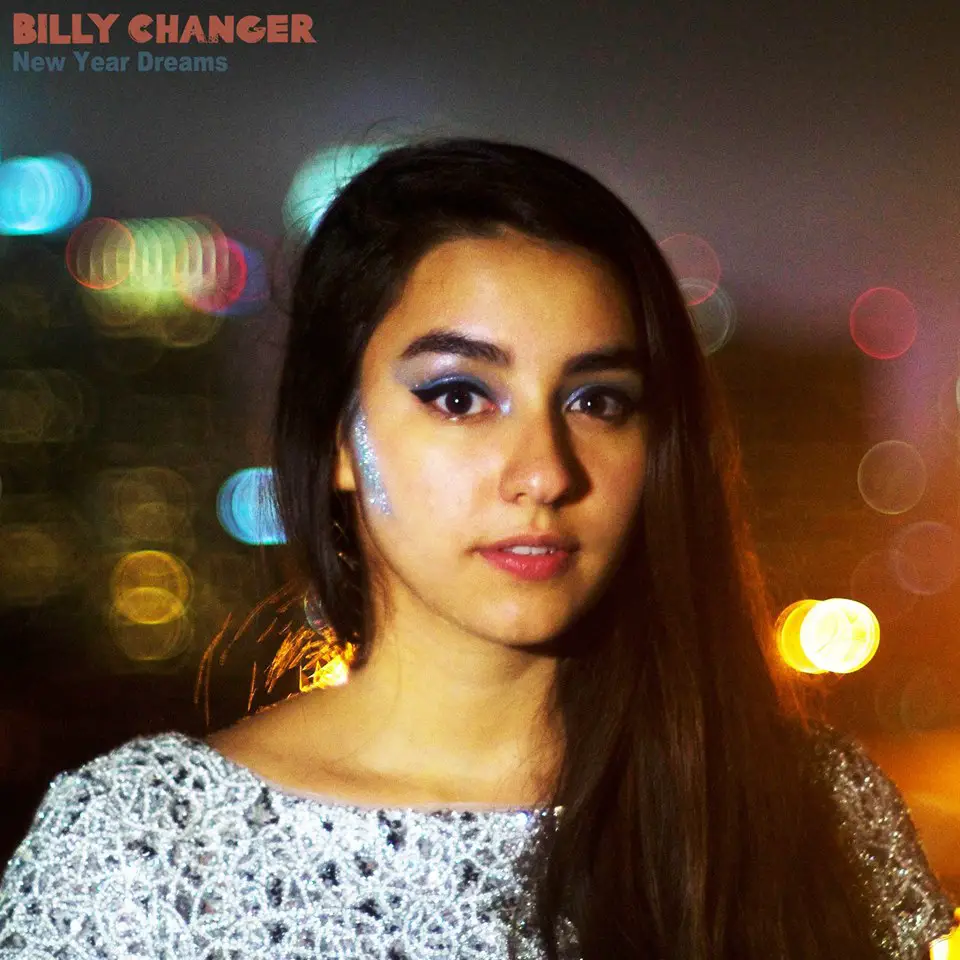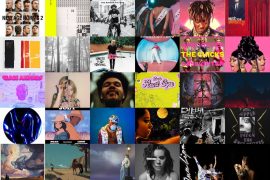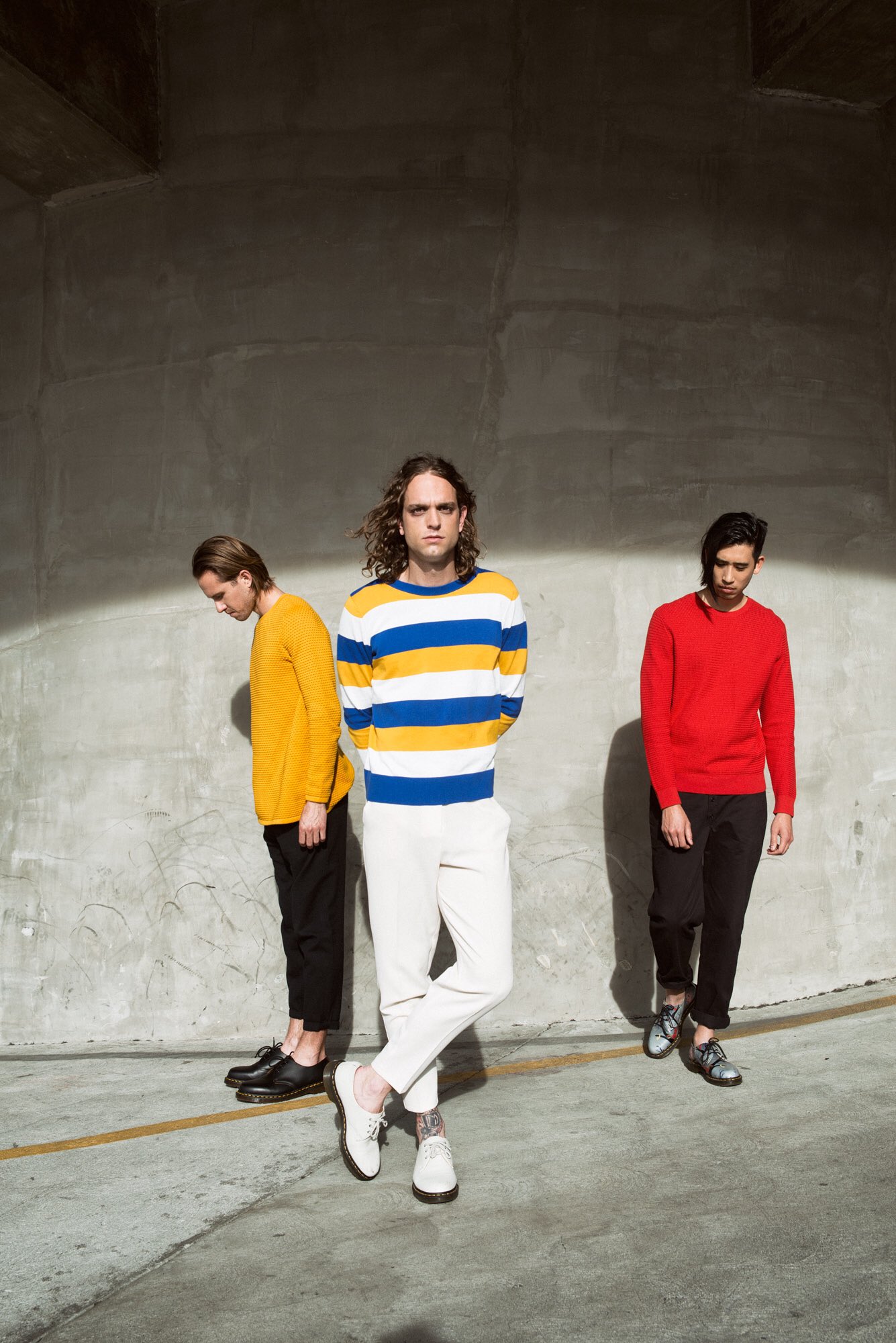An authentic presence in person as in song, Joy Oladokun has emerged over the past year as one of Nashville’s most prolific, expressive, and exciting singer/songwriters. Atwood Magazine engaged the artist in a conversation about music and songwriting, identity, therapy, spirituality, and so much more.
Stream: “sorry isn’t good enough” – Joy Oladokun
This volume is just saying, as a Black queer woman in America in 2020, “What does it mean to defend my own happiness outwardly?”
An authentic presence in person as in song, Joy Oladokun has emerged over the past year as one of Nashville’s most prolific, expressive, and exciting singer/songwriters.
A growing voice of her generation, the Atwood Magazine “2020 Artist of the Year” enjoyed a breakout 2020 with her independently-released sophomore album in defense of my own happiness (vol. 1) [which has since been retitled ‘the beginnings’], which was heralded by the likes of NPR and Billboard, among many others. Described as “a beautiful expression of self-examination steeped in the best of folk, soul, and hip-hop” by Atwood’s own Lowndes Commander, Oladokun’s music is an open book: As a songwriter, she plunges into the depths of our shared human condition, exploring everything from her own gender, sexual, and racial identities alongside themes of love, legacy, prejudice, connection, intimacy, regret, confrontation, hope, and so much more: As we wrote last year, “The artistry, the humanness, and everything in between shines through her words and songs.”
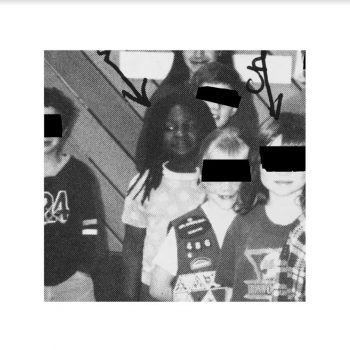
Oladokun’s album was in many ways the culmination of years’ worth of work and preparation, but it was also just the very beginning of an exciting period that has since seen her releasing one song nearly every month – starting with September 2020’s “if you got a problem,” and continuing (with the exception of March) through to this May’s “Bigger Man,” which finds Oladokun collaborating with country pop star Maren Morris.
From an outside perspective, one song a month sounds like a tremendous undertaking, but Oladokun writes songs nearly every day. A songwriter by trade (she has a publishing deal with Dr. Luke’s publishing company Prescription Songs), Oladokun uses her music as a means of picking apart and processing her own life. This has always been the case, and yet it’s grown increasingly salient on her newer material – much of which will be featured on her upcoming third LP, in defense of my own happiness (vol. 2).
“From a personal standpoint, I am writing from a different place as a different person,” Oladokun tells Atwood Magazine. “I think vol. 2 has been this exploration: There are practical things that have happened in my life, like getting a new therapist, or reaching the three-year mark on my relationship, or moving into a new house, little things that sort of changed my outlook on what I want from life or what I wanna focus on. And so I think, as my life is changing, the music has changed too, and not to mention, this one’s a little more political in nature. I think the first volume was very much about the ways in which I sabotage my own happiness, and this volume is just saying, as a Black queer woman in America in 2020, what does it mean to defend my own happiness outwardly?“
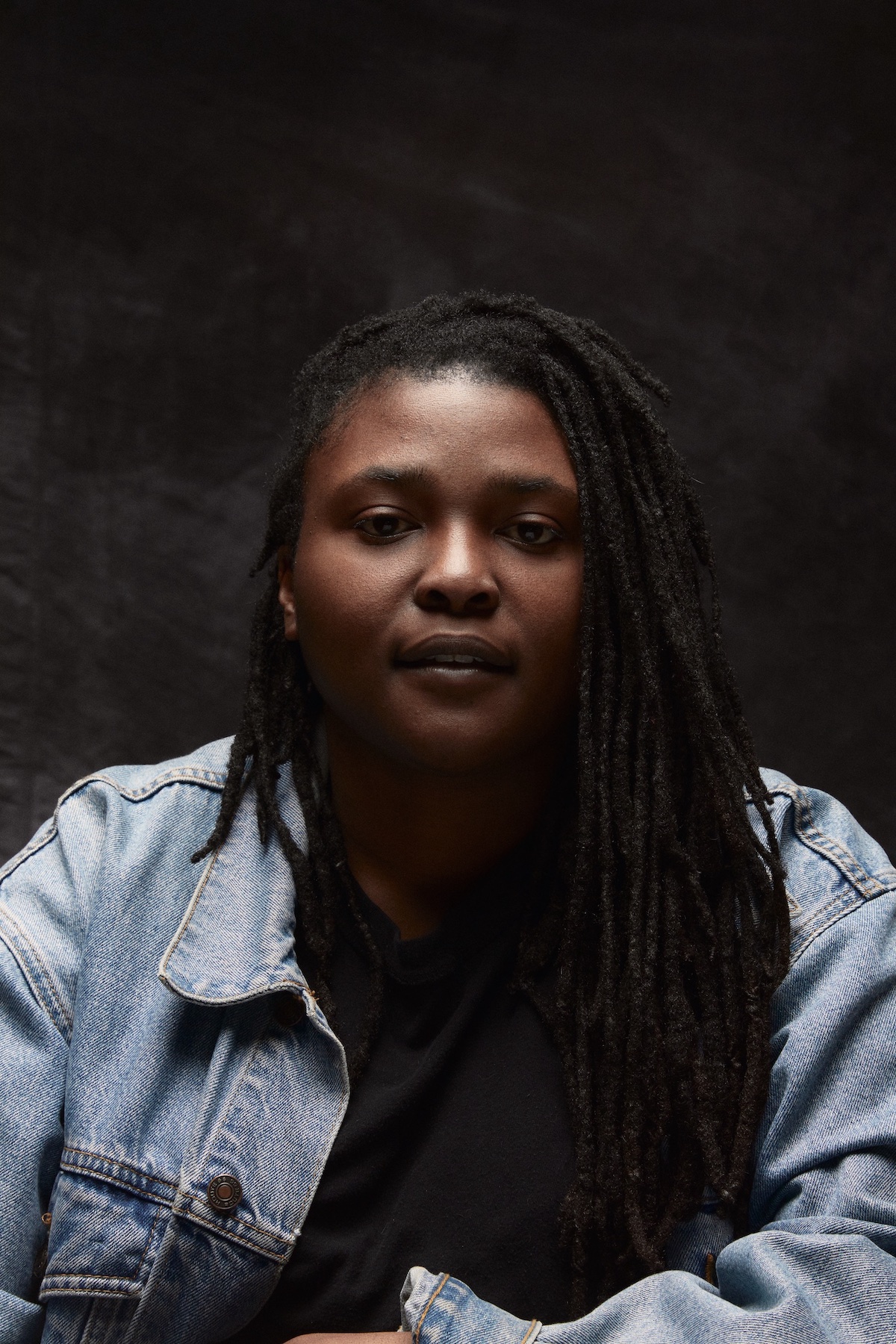
Personally, my entire life I have been trying to bridge the spiritual and the physical. I have existed too much in my head and in my heart at times, and forgotten that I am a human being with limits and flaws.
That musical journey has already taken Oladokun through a breathtaking series of highs and lows: From the heart-in-hand “if you got a problem” and the hopeful “look up,” to the visceral piano ballad “mighty die young” – in which she begs fans, family, and friends to see her as more than a musician – and the impassioned “i see america,” a poignant, open-eyed reckoning of the America we have, and the one we want to have. “It’s a song of true American exceptionalism: Of having the humility to recognize and work through our country’s history, its misgivings, and its failures, in order to make a more perfect union,” Atwood wrote upon the song’s release.
This past January, Oladokun collaborated with fellow singer/songwriter Jensen McRae on the particularly hypnotizing “wish you the best,” a poignant, bittersweet letter to a flame long gone. In it, they recognize the remnants of love: A desire to see one’s ex succeed in spite of the damage they left in their wake. It’s simple enough to grasp, and yet Oladokun’s performance brings such vivid energy and emotion to the fore: She projects a raw mix of pain and a mature kind of love that goes beyond minute-by-minute feelings, speaking to a greater desire for we as individuals to be our best selves and excel at life.
She followed with “jordan,” a song of self-discovery, deep self-expression, and unapologetic love. “I wrote ‘jordan’ the day I decided to come out,” Oladokun shares. “I had spent a lot of time in self isolation dreaming of what it meant to be fully known. Letting myself imagine a life where I could be loved and happy was my first step into that journey.” Her lyrics cut to a heavy core in which joy and pain coalesce:
They drowned me in the Jordan
Then they tried to wash me clean
They got the stains out
But now it’s too damn hard to breathe
They told me he’s a good lord
As they tied the shackles to my feet
They drowned me in the Jordan
And then they walked away from me
I washed up on the shores alone
In a tattered wedding gown
Disillusioned and hardened
Everything I’d known had let me down, down, down
That is where you found me
Grace and whisky on your breath
You pulled me back on my feet
And taught me how to dance again
Oladokun’s year thus far culminated these past two months with the feverish, impassioned “sorry isn’t good enough” and the new Maren Morris duet “bigger man,” a delicate and elegant, sweeping confessional that once again finds Oladokun bearing her soul to the world.
“The day we wrote ‘Bigger Man’ was actually the first day I had met Maren Morris, Jimmy Robbins, and Laura Veltz,” Oladokun recalls. “We were bouncing ideas around the room, and I had this song idea that came to mind when I was meditating that morning. The idea was about being the bigger man. In my life, I sometimes experience being the youngest and the most inexperienced, and yet I have to conduct myself as though I am way above my years or my maturity. I think it’s an old feeling, especially for women and people of color, of having to be stronger, better, brighter, and harder working at everything just to get a shot. We wrote from that place and the song was born—I’m really proud of what we did. I’m also excited about the friendship and the things that were born out of it. I hope it helps people in the same way that it has helped me.”
Here you go again
Still out, still right, still not listening
How it’s always been
Doesn’t make it make any sense
You were born on the high road
But somehow I always go higher
Oh, I hit all the high notes
But still don’t got a seat in the choir
I’ve pedaled upstream where the river end
I’ve touched sticks and stones to an olive branch
I’ve made a full house from a shitty hand
Yet, here I am, still gotta be bigger than thе bigger man
These recent songs also arrived alongside news of Oladokun signing a joint partnership with Amigo Records / Verve Forecast / Republic Records – meaning her forthcoming third LP will also be her debut release on a major record label.
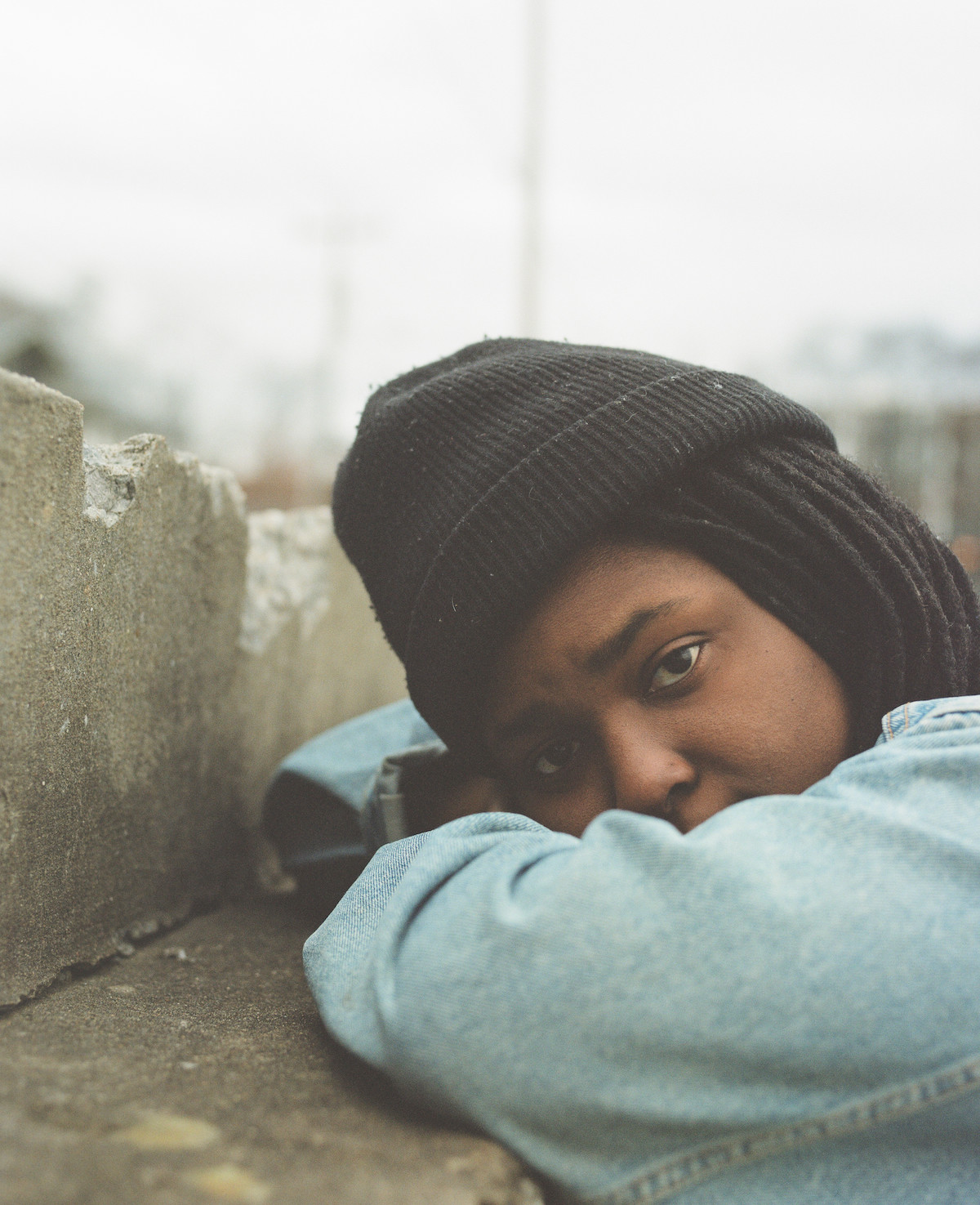
For her part, Oladokun just hopes to be seen as more than the sum of her parts. “My queerness or my Blackness or my musician-ness, it’s just not the fullness of who I am,” she explains. Her complexity – the depth and nuance of her true character – shines through in her music.
“A lot of the songs from vol. 2 were written for very personal reasons or in very personal moments,” she adds. “I hope that each body of work I release becomes more and more universal, ’cause I think it helps break stereotypes and assumptions that people have of each other.”
Oladokun tells a story of her tour with folk duo Penny & Sparrow, and performing for a largely white, heavily evangelical Christian crowd.
“I would start talking in really general terms about my life and about love, yada yada, and towards the end, I would start being really specific in talking about my queerness, because I knew that that was a group of people in which some did not think it was okay to be queer, but I know myself and know that a lot of the assumptions that people had about queer people were broken when they heard me sing songs and talk, and when they chatted with me after stage.”
“I think being personal and being honest and just being a good steward of the spiritual aspect of the gift of music not only sets me free, but I think it just breaks down a bunch of walls. I’ve seen it over and over again.”
Joy Oladokun recently connected with Atwood Magazine for an in-depth conversation about music and songwriting, identity, therapy, spirituality, Judaism, Phoebe Bridgers, overcoming stereotypes, and bridging our divides. An authentic presence in person as in song, Oladokun approaches life with refreshing warmth and hope. Lend her your ears, and she may open your mind, too.
My dream situation is to rent a cabin for a month and just be alone, and the only thing I do Monday through Friday is see a therapist for an hour. And that is the only outside human interaction and the rest is just me writing and resting.
— —
:: stream/purchase “Bigger Man” here ::
A CONVERSATION WITH JOY OLADOKUN
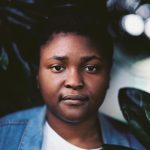
Atwood Magazine: Joy, thank you so much for your time today. Starting off, how have you and your loved ones been throughout this time?
Joy Oladokun: Good! My family’s pretty emotional and I’m pretty emotional, so I think the hardest thing is being apart and the anxiety of it all, just not knowing when we’ll be able to see each other, not knowing if we’re gonna get sick. I think it’s a hard thing to adjust to that level of hyper-awareness of your health and the health of those you love. But besides that, I’m good. I feel like it’s one of those things where, in a year where a lot of things have gone wrong for a lot of people, things have been relatively good for me. And so, it’s always holding that balance of wanting to sit with people in their pain and in the sorrow of this year, and to acknowledge that… I don’t know, we are working and being productive and creating in a really hard time, and so I think even if I had a good year, even if I was really productive, I am reaching the point where I’m realizing, “Oh, it’s still taking its toll on me.”
I understand. If I may transition our conversation over, 2020's been an exciting year for you. Despite all the chaos and all the pain, I think this will be one of the years that you can look back on and say that it was a milestone. It feels like the year that you started to break out, if we're gonna use terms like that.
Joy Oladokun: Yeah.
I know your second album was a very long time in the making, and I want to start there. How did in defense of my own happiness come about, and was any of it impacted by 2020?
Joy Oladokun: Oh, yeah. I definitely was working on the record up until about a month before it came out. The songs, some of them were older, some of them were newer, written in the process, but in defense of my own happiness was borne of… I had been waiting since 2016 to put out more music and just writing, because I write most days, and I finally was just like, “I’m tired of waiting for someone to hop on board. I’m tired of waiting to have the right team and all the right looks. I know that I have the music and I know what I feel like I wanna contribute to the culture, so I’m just gonna do it.“
How has in defense of my own happiness (vol. 1) grown on you since its release? Has your relationship with the songs changed?
Joy Oladokun: Yeah. By the time it was about to come out, I couldn’t listen to any of the songs anymore, which is where I’m at with volume 2, to be honest. But I think listening back now, I’m really proud of myself. I produced 8 out of the 10, and I think against a lot of odds was able to put together a project that feels cohesive and feels like me, and takes all of the weird genres that I’m dipping my toes in, in a new direction, and that’s fun.
Listening back with fresh ears, what are you most proud of or impressed about that record, and do any of those songs continue to resonate with particular strength?
Joy Oladokun: Yeah. Playing “mercy”, I… “mercy” was just a free write. I didn’t even edit it. I literally just wrote it down, wrote it down, wrote it down, and then was too lazy to write a bridge so I sent it to my rapper friend, Tim, to put a verse on. And I think, personally, my entire life I have been trying to bridge the spiritual and the physical. I have existed too much in my head and in my heart at times, and forgotten that I am a human being with limits and flaws, some would say. And I think that… I don’t know, I think breaking that idea and coming into the light, I am…
I need rest, I need water and food and snuggles and all those different things. And, yeah, I think the biggest thing I have learned in that, “mercy” taught me, is that I don’t have to be in my head all the time. I can look at something… Or, I don’t have to over-analyze things, I can look at something and say that that is bad. The second verse says, “The devil is not in the details, he’s on the front page.” Because Trump was president and he was in the headlines all the time, and I just, for the life of me, couldn’t even understand any argument to the contrary that he’s not just a complete monster.
[laughing] It’s crazy. And so I think I just wanted to be like, I… Stuff is messed up, and I don’t have to think about it and I don’t have to over-spiritualize it, and I don’t need a priest or a pastor to tell me that it’s messed up or that I need grace or rest, I know those things. “mercy” was the first step in me trusting myself and trusting my own voice, and so that’s the one that I like. I will listen to “mercy” on my own time, and I don’t listen to anything else from my catalogue. [chuckle]
Is it because you know the songs too well, or you can't stand the sound of your own voice, or it's just not fresh anymore in the way that music-listening can be fresh?
Joy Oladokun: I used to think it was because I couldn’t stand the sound of my own voice, but my relationship with myself is improving, so that’s not the case anymore. I think it’s the, “Familiarity breeds contempt.” I think if there’s anything music has taught me, it’s that what you want to happen in your head almost never ends up being the end product, and so I think I just had to let go. I still have to tell myself, it is what it is, in a good way and a bad way. And so, I think listening back to old music is like, “Ugh, in my brain I wanted this to sound more like this.” And I can’t just move past that.
I love how evergreen “mercy” is as a song. It's a personal favorite of mine as well; there is a timelessness to its message that's important, especially these days. We need messages like that more than ever before, and I appreciate you having that.
Joy Oladokun: Thank you.
You mentioned in our last interview that the painting was still wet when you began writing and recording vol. 2. Each of your new singles has already found a special place in my heart. Do you feel a difference between these songs and those from vol. 1?
Joy Oladokun: Yeah. From a personal standpoint, I am writing from a different place as a different person. I think that it’s crazy to think that I already feel some sort of emotional… Maybe not emotional distance, but I do feel some distance from ‘vol. 1’, and it’s not even six months old. And I think vol. 2 has been this exploration. There are practical things that have happened in my life, like getting a new therapist, or reaching the three-year mark on my relationship, or moving into a new house, little things that sort of changed my outlook on what I want from life or what I wanna focus on. And so I think, as my life is changing, the music has changed too, and not to mention, this one’s a little more political in nature. I think the first volume was very much about the ways in which I sabotage my own happiness, and this volume is just saying, as a Black queer woman in America in 2020, what does it mean to defend my own happiness outwardly? And so, yeah, I just, it is still wet, especially ’cause it’s not finished. [laughing] “Starts sweating.”
Make it a Life of Pablo thing, release ten different copies over five months.
Joy Oladokun: That’s what I want, yeah, just without being as destructive a human as Kanye. I like how malleable he is with his art. I don’t wanna be disrespectful. I really do try to turn things in on time. The only time I rushed a release was “Who Do I Turn To?” But I do think we take the planning side of music a little too seriously, because the world changes so fast, and now we as artists have this capability, you just press upload, whenever. And so I just, I don’t know, I’m like, “Yeah, let’s put out so much music.”
I've never felt worse for the artists who wait a year to release a song that was written three years prior to that… It's gruesome, and it's still how our music industry works.
I think it's really powerful how you say that you are owning more and more aspects of your identity and really letting it shine. Speaking to us earlier this year, you spoke of this being a bunch of songs about “what it's like to be someone like me in this world.” Can we talk more about how that's manifested itself in the music?
Joy Oladokun: Yeah, I think when I write, I sit down to deal with an emotion or deal with a hope or an inner conflict or my own inner demons to confess something, whatever. It is a very cathartic experience for me to write. And I think what I do in the making of the product or in the making of the song is I try to open that very personal experience up, just in case there’s anyone else that can relate to it. And I think what I found is, like with “Sunday,” we did… The music video was a bunch of queer couples of faith, which is kind of niche, but all the messages that I got in the comments that read, whether it’s a queer person that is spiritual or not, just being able to say like, “I saw myself in this video” or “I heard myself in this song. It reminded me of my coming out.” I think I need to be reminded that I’m not alone, and I think other people need to be reminded that they’re not alone.
I think it is for me, and it is about what it is like to be me in this world, but it is done with a recognition that I’m not the only person that feels like me, or I’m unique but I’m not special. [chuckle] You know what I mean?
I think there are other people that sometimes need to hear what I’m learning or have something to teach me through how they hear a song of mine or read a lyric.
It sounds kind of like what I'm hearing is that you're being a little less afraid to be your full self and to not try to water it down for a more general universal audience.
Joy Oladokun: Yeah, yeah – no, I hate that. [chuckle] The publishing company that I’m applying to is a pop music publishing company, and when I’m not writing for my artist project, I like to write for a lot of pop music, like pop artists. And I am such a stickler about just stuffing a vitamin in the Twinkie, because I think what has happened in the music industry is we started under-estimating the consumer [chuckle] and started being like, “Let’s just… ” I don’t know. And you can tell by how people are dissatisfied with some of their favorite artists’ releases this year, because it’s like people put out music without reading the room. And so, yeah, it’s gotta say something, it’s gotta mean at least a little bit of something.
“Sticking a vitamin in the Twinkie,” is that a phrase that you use often? I absolutely love it.
Joy Oladokun: In writing sessions, yes. [laughs] Thank you.
I love the notion that music has to mean something too. That's been something that I've always looked for in the songs that I love… and in your music, you coming at things from a very human level. I know you've been open about therapy. Do you feel like it's had a big impact on your approach to your own song writing and your music?
Joy Oladokun: Totally. My dream situation is to rent a cabin for a month and just be alone, and the only thing I do Monday through Friday is see a therapist for an hour. And that is the only outside human interaction and the rest is just me writing and resting. I used to work at a church, and I feel like White dudes who could afford to take a vacation would do that. [chuckle] I don’t know, I think there’s something about having a sounding board, having someone who challenges you or who affirms you. Like right now, this past week, my therapist and I went through my entire life map, so from birth to right now, we talked… I walked through everything, she had me find three words to describe myself at each phase, and that… Connecting with myself and how I operate in the world through therapy, naturally has an impact on the way that I write because I’m already writing from such a personal space, so as I change and as I grow through therapy and other things, it just is directly translated into the music.
My dream situation is to rent a cabin for a month and just be alone, and the only thing I do Monday through Friday is see a therapist for an hour. And that is the only outside human interaction and the rest is just me writing and resting.
I really appreciate that. If you weren't already writing such intimate and personal songs, the most recent ones definitely feel even more pertinent. I’d love to go through some of your more recent singles one by one, because I think they're each so special. I love the strength in “if you got a problem.” Could you share a little bit about where this song came from?
Joy Oladokun: Yeah. So I wrote “if you got a problem” with two of my friends, Ian and Peter, here in Nashville. And Ian has worked on the Kacey Musgraves album. And then Peter, he is in a band called Hush Kids, that’s so sick. And they… What I like about… My favorite collaborators are always very musical, but also just very personable, and they don’t need to be the best at whatever they’re doing in the room. And so, both of them can play everything and anything. And so, we just spent the day talking and just playing piano and drums and guitar and just like… I was going through a period where Rachel, my partner, was going through a hard time. And I… I am an empathetic person, but I’m really good at, if someone is telling me their problems on this couch, the moment we’re done with the conversation and I’d go downstairs, it’s like I’m not caring anymore.
But I was finding with Rachel that I would be thinking about, “Is she okay?” or I wonder how she’s dealing with this thing, and it was like a new aspect of empathy to me. And so, I was explaining that to them as we’re jamming on some old Bill Withers tracks or something. And I just started singing the phrase, “If you got a problem, I got a problem too.” And then we wrote it in like an hour, and I think I just wanted… I love, love, old soul music because it’s so positive but it’s not saccharine. It is hopeful without being oblivious to the realities of what life is. And so, I wanted to write a song that was like my best attempt at something like that.
I think soul music is music of pain, and if there's one thing we can say about that song, it's a song that it lives and thrives off of empathy. It sounds like you have a lot of empathy for your partner. She's a very lucky person. The next song, “i see america,” which arrived one week before the election time.
I read a post that you shared alongside the song, and I was really moved by your words. I feel like the notion of American identity has been a salient part of the national dialogue all year long, more so than ever before. Can you talk about your take on American identity, that you really brought to the fore in this song?
Joy Oladokun: Yeah! I grew up in a farming town. It’s in between Phoenix and Tucson. It’s called Casa Grand or Casa Grande, and it is a cotton and dairy farming, and it is also one of the highest teenage pregnancy rates in Arizona. [chuckle] So there are the fun facts about my hometown. But there’s something about farming towns that is just… It is synonymous with Americana. You think of trucks and guitars and men in hats. And I don’t know, being in the space where I feel so much from a place like that, but I look the way that I do, and I talk the way that I do, and I listen to the music that I do. I think the goal of “I see america” was to create ideas about versions of America that we haven’t seen. And I think about people in prison all the time, because I think it is one of the most inhumane things that we do as a country.
One, that we outsource it to corporations, and two, the practices that we enact. If it’s really about reform and changing the person so they don’t commit more crimes, do that. Don’t just herd them like animals. And so, I wrote the first verse about… I think I was driving out in Nashville. And I love Black people so much. I love Black people so, so much. And so, I was out and I saw this beautiful, old, Black man and he was laughing, and you could just tell that he had been through so much, and I was like… A couple of days later is when I wrote “I see america,” and I just woke up and it was like a download. And it was just this idea of the holiest people that I see or the people that elicit the most emotional spiritual reaction out of me, or these old OGs who protect their neighborhoods and teach kids lessons and hand out food when times are hard.
It’s not some ass pulling a cowboy hat and it’s not someone who… I don’t know. It’s not a straight White dude. It’s not. My America doesn’t totally look like that. I think, I was thinking about my partner and some of my friends. I live in Nashville, so I have a lot of White friends. [chuckle] And during the lead-up to the election, I had a friend who drove home to Florida to try to convince his dad not to vote for Trump, and just… There’s this contingency of people who don’t wanna repeat the sins of their fathers, but they also love their fathers. And the second verse is, it’s about people like that, who sit in the space between what America was to the marginalized and what it can be for everybody. And I just wanted to write a song about that. I didn’t wanna write about my personal experience of America. It was more like, I see these people. I see this version of America. I see this vision.
I really like that song, because I think it speaks to a much broader world, and I like its viewpoints and its perspective. When I heard it, my reaction was, “More people need to hear this song.” It’s easily one of the most powerful songs you've written to date. “I saw God out on the block today, he was darker than the preachers say.” That first line just hits you in the heart. And then, you're off to the races from there.
Moving on, your song “look up” is quite sweet and uplifting, considering it's pointed in such a manner. “Trouble is always gonna be there, don't let it bring you to your knees,” you sing. Do you find it harder to write uplifting or darker material?
Joy Oladokun: No. I think it’s the church kid in me that always wants to put a little bow on everything. Even my TikTok bio is “singer of sad bops with silver linings.” I think even when I am writing my darkest, saddest song, I’m like, “Okay, but where’s the hope?” And I think “look up” was one of my first… As a human, I’m learning to hope more and be anxious less. I just wanted to write something that reminded me that, literally, even on the worst day of your life, there is still beauty, which feels trite, even having it come out of my mouth, but it’s just true.
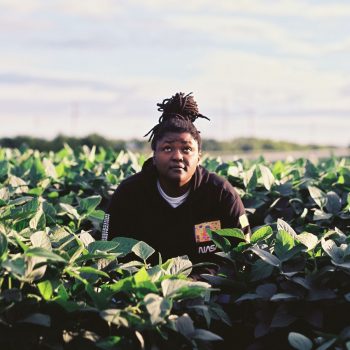
And then, we took the cover photos at a plantation. It was the perfect representation of I am surrounded by a place that… I wanted to take the photos there for a very specific reason. I took photos in the house where I’m on the stairs, in charge and all that stuff, but I was surrounded by a place that was so ugly, to me. It will always be ugly to me and most Black Americans. But it was a beautiful setting and you were looking out at this massive field. And, I don’t know, I just, as a person, have been prone to wallow and to submit to the despair. And so, “look up” is sort of the beginning of me wanting to push myself into writing even more hopefully and joyfully.
As a human, I’m learning to hope more and be anxious less. I just wanted to write something that reminded me that, literally, even on the worst day of your life, there is still beauty, which feels trite, even having it come out of my mouth, but it’s just true.
Sometimes your life feels like a broken rollercoaster
A thousand useless moving parts
Sometimes you spend your nights
Too scared of getting closer
Hiding out in the back seat of your car
You tell yourself it’s raining
The clouds are in your head
You tell yourself it’s better
To jump before you fall again
Before you lose it all again
Look up / Do you see the sunlight?
Look up / There’s flowers in your hair
Hold on, ’cause somebody loves you
You know trouble’s always gonna be there
Don’t lеt it bring you to your knees
Look up
I loved your broken rollercoaster metaphor. Is that one you've been saving for a long time?
Joy Oladokun: It is not, but I love rollercoasters. And I think I had written it right after I went to Dollywood [pre-pandemic], and one of the rollercoasters was down.
I appreciate a song that can kind of take both sides of the coin, happiness, joy, and sadness, and recognize that life is a full spectrum. You pepper your music in with a little bit of both. Has that always been a part of your mantra, your motto, or your goals, or is it something you've noticed along the way?
Joy Oladokun: I definitely noticed it along the way, but I think when I noticed it, I was like, “Oh, I think this should be a value,” just because I think I became a musician because, partially, because of my dissatisfaction with pop music, and I think we were in 2016, when I released ‘Carry’, it was this weird point where all the songs on the radio were about how horrible we all are, but we’re still in love and it’ll be okay. And I was like, “Yes, that is true. We are pretty terrible, but we are capable of good and beauty.” And I was tired of the laziness of just falling back on, people are crappy, until I… Yeah. I think since then, it has been like a, “No, I really want to… If you’re not pushing yourself forward in hope, and if you’re not pushing others for it in hope, what’s the point?” I don’t see the point. There might be a point, but I don’t understand it.
Your ballad “mighty die young” feels both majestic and humble. I also feel like it's some of the most personal to you than some of the other ones - talking about being told you're too kind, lyrics about dignity and youth… How did the song come to pass?
Joy Oladokun: I was out with my friend, Mark, and he just said the phrase, “The mighty die young.” And it was a few days after I had watched the Amy Winehouse documentary. And had you met me in that timeframe, the only thing we would have been able to talk about was that documentary, and for me, all the warning signs were there. She was clearly unhappy, clearly unhealthy, and no one around her took any sort of step to take care of her. And my biggest fear going… Being a musician and… I’m not a big deal by any means, but I just think of people like Mac Miller and Lil Peep and just people who have passed away at a crazy young age, KURT Cobain, Jimi Hendrix, Janis Joplin, just the endless list of people who died too young, were clearly unhappy and no one did anything.
And I, on the business side of things, have been protective of myself to a point where it maybe comes across as me being difficult, because I am afraid of that for me. Just to be straight up, I don’t… I don’t want to be so dissatisfied in my work and feeling like the people around me only wanna be around me to get something. I don’t wanna be so in that that I accidentally hurt myself or someone else. And so, “mighty die young” is literally me begging the listener, and also myself and my family and my support system, to see me as more than a musician. I don’t wanna be on a pedestal. That’s why I post pictures with my dog or of me fishing or of my pot brownie slippers, because I’m not… I’m not fancy. I got this sweater at Target. I’m not gonna be nominated for a Grammy anytime soon. I literally am just… I’m just here making music in a pretty monastic way, if I’m honest, and just doing it so I can get to know myself, and hopefully, through getting to know myself, help other people do the same.
I appreciate your honesty! This is your calling – “don't label me as just one thing.” I also felt like there was a strain of, “Don't underestimate the things that I can do.” Don't make any assumptions whatsoever, and let's just play it out.
Joy Oladokun: Oh, yeah, definitely.
I like that this was the final song that you released in 2020. Was there any plan or did you just kind of end up that way?
Joy Oladokun: I think this one sort of ended up this way, and then we were about to change it because, again, flexibility. And then I realized I was maybe more attached to it, being at the end of the year, than I realized. I don’t know, I just… Not for any particular reason. I just, I think maybe personally, it might be nice to say, I think I have had a year where, like it or not, my profile has gone up, and I just… I’m all about communication and establishing trust, and I think as an artist who can be delicate and fragile, I think it will be good to be like, “I am doing this to take care of myself and you. Please return the favor.”
It's okay to bask in some success.
Joy Oladokun: Yeah. It’s hard for me. [chuckle]
I hope you get to enjoy it! As hard as it is to say to anybody, “We'll look back fondly on 2020,” 'cause we won't…
Joy Oladokun: But I will, I truly will. I had a song on Catfish, and that doesn’t seem like a big deal, but I freaking love Catfish. And then I got a song on Grey’s, and I got to be on a billboard, and I just… I went from some people listening to my music to what some would consider a lot of people listening to my music, and it…
A lot of people listen to your music.
Joy Oladokun: A lot of people listen to my music. And this is all in a year where people lost family members and America was ripped down the middle and then some, and talk less of conflict in Ethiopia or Nigeria. It’s been bad. So, it’s gonna be weird too, to hold both of those things, but it will be done.
I think it's a testament to who we are as people, that nothing is so complex that we can't handle it. You mentioned earlier that you want people to see you for your whole identity; you don't want them to label you in any single way, and you talked already about some of your identities and how salient they are for you, as a Black and queer woman. Is there a community that you specifically identify with that or that you have felt a bigger presence for your music has gotten more and more ears? Is that becoming a bigger part of your experience as a musician, or is that something that's just a part of your world as is?
Joy Oladokun: I think it just kind of continues to be a part of my world. I like the idea of being an ambassador or a representative, and for me, my queerness or my Blackness or my musician-ness, it’s just not the fullness of who I am. And I think that when I am in a room full of music people and I happened to be queer, I think some of that identity helps lend a different perspective, and it is part of what makes me unique, but I don’t know that there’s a community that I feel like I rep harder than the other. I try to get them all. I think, especially in rooms and in one-on-one or in small group situations or business meetings, it’s cool to see what part of my identity is necessary to defend or showcase or honor in different rooms.
I like the idea of being an ambassador or a representative, and for me, my queerness or my Blackness or my musician-ness, it’s just not the fullness of who I am.
It's not something that you choose, it's something that the situation chooses for you?
Joy Oladokun: Yeah.
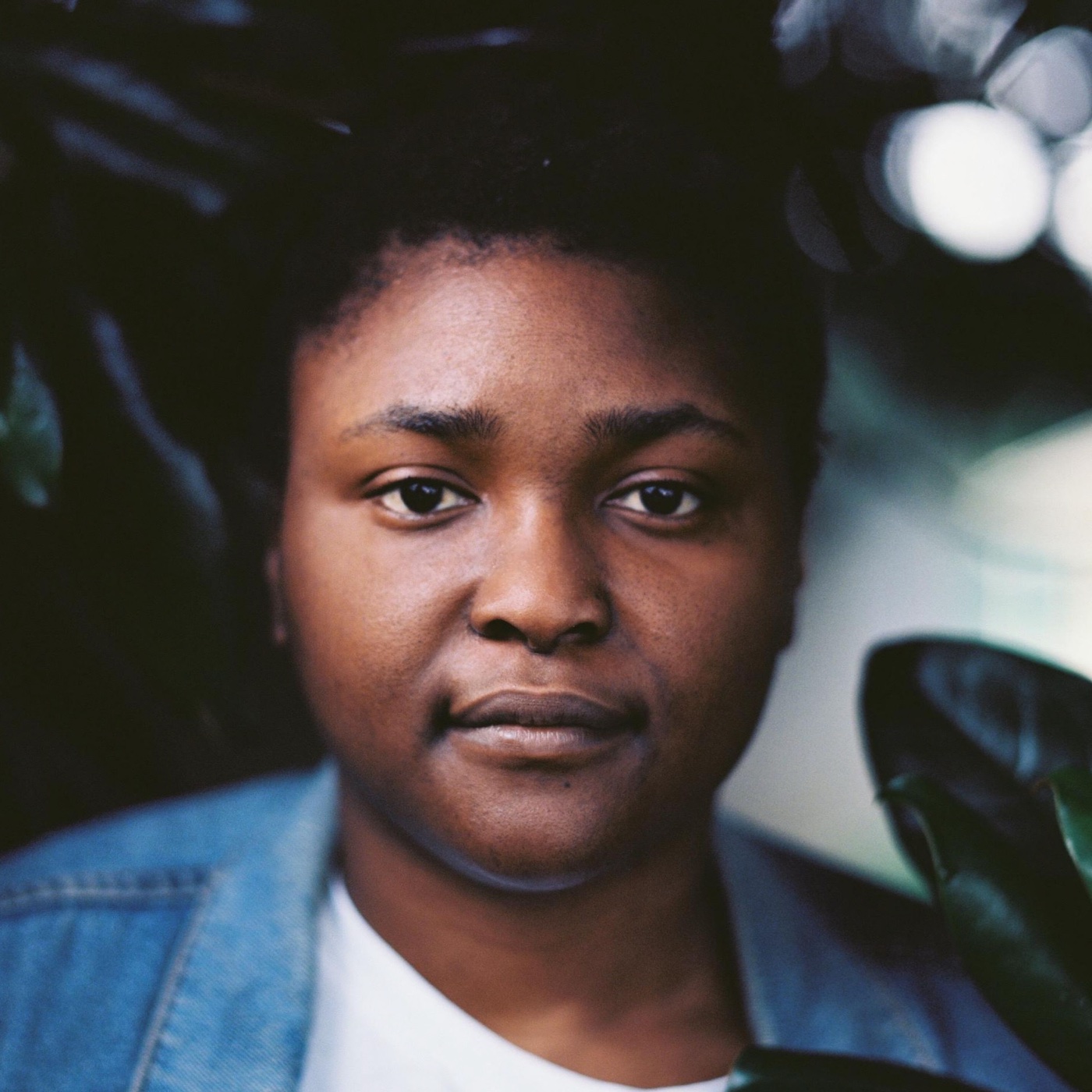
That's really interesting. I tend to bust out my Jewish identity sometimes.
Joy Oladokun: Jewish people are among my favorites! My girlfriend is Jewish… I just love… Every Jew I’ve met is incredible, and just funny, smart, talented. I just… I’m a fan. And on Fridays, Rachel’s dad calls us to give us a Shabbat blessing. If you want him to call you and give you a Shabbat blessing, I’m sure he will. It’s a lovely culture. [laughter]
You’re too sweet! You shared how one of your goals as an artist is to find a common thread of humanity. Do you feel like vol. 2 creeps closer to that mission statement more so than ever before?
Joy Oladokun: Yeah. I think it’s funny, I almost feel as if the more personal I get, the greater the reach becomes. And I have been trying to remind myself of that in my tiredness or in the business-y aspect of releasing music, like is it accessible enough, yada yada. I feel like, so far, I’ve seen that a lot of the songs from ‘vol. 2’ were written for very personal reasons or in very personal moments, and already to see… “if you got a problem” is a very great example; it’s a song about and for my girlfriend, and the fact that it is one that we did the word to branch it out, but also that the scope has sort of expanded to people relating and singing it to kids and parents, and…
I don’t know, I hope that each body of work I release becomes more and more universal, ’cause I think it helps break stereotypes and assumptions that people have of each other. I did a tour that was mostly… It was like a pretty odd mix of pot-smoking hippies and evangelical Christian White girls, [chuckle] and yeah, it was like… It was this folk band, Penny and Sparrow, and their lyricism, it’s just religious enough that I think the evangelical crowd is like, “Oh, yeah, we’re the cool kids.”
I hope that each body of work I release becomes more and more universal, ’cause I think it helps break stereotypes and assumptions that people have of each other
Whereas they themselves are not so much.
Joy Oladokun: Yeah, not so much. But I did that tour and I started organizing my set so that I would start talking in really general terms about my life and about love, and yada yada, and towards the end, I would start being really specific in talking about my queerness, because I knew that that was a group of people in which some did not think it was okay to be queer, but I know myself and know that… I don’t know, I just… I know that a lot of the assumptions that people had about queer people were broken when they heard me sing songs and talk and when they chatted with me after stage… After the concert, until I think… I don’t know, I think being personal and being honest and, I don’t know, just being a good steward of the spiritual aspect of the gift of music, not only sets me free, but I think it just breaks down a bunch of walls. It’s just… I’ve seen it over and over again, and… Yeah.
That's privilege for you, right there, because never have I ever felt like I had to represent anything more than me when I'm doing anything. I really respect that a lot.
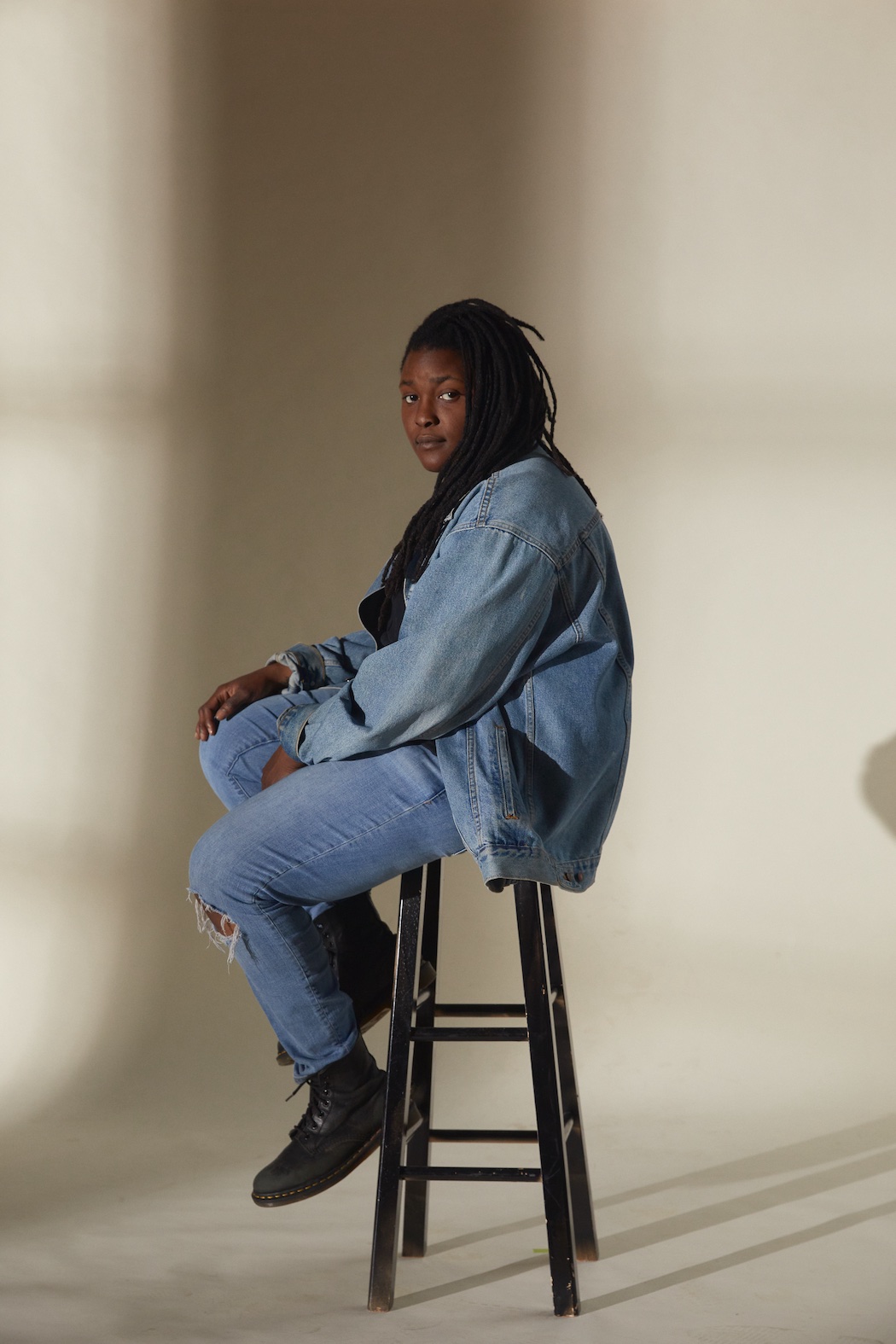
Have you been learning more and more to be your own producer as well over this past year? Have you really grown in that department?
Joy Oladokun: Yeah, I feel myself getting better and better each time I start a new project, which is exciting. And I’ve just been a little bit more intentional about education, watching YouTube videos, or hopping on Reddit when I have a question, or to see if there’s a work around for a thing. But, yeah, I think I’m getting pretty good. I scare myself. [chuckle]
That's awesome. Is this new music all self-produced as well, for the most part?
Joy Oladokun: Yes. “look up” was produced by Dave Bassett, and “if you got a problem” was produced by Ian and Peter. And I think there’s one more that is an outside production, but everything else will be me. I’m gonna direct right here.
What have you been listening to, and is there any music locally or otherwise that you're really excited about?
Joy Oladokun: Yeah, I have been just listening to “I Know The End” by Phoebe Bridgers just maybe on repeat for the past six months. [laughs] Just doing quick math there. I think that album in general is the perfect soundtrack to a pandemic, to be honest. It is sad, it is reflective. So I’ve been listening to a lot of Phoebe. I’ve been listening to this girl name Jensen McRae, who I’ve loved her music so much, but she doesn’t have a ton out, but I loved her music so much, I begged her to be on vol. 2. [chuckle] She wrote the song called “Wolves” that, after we get off the phone, please listen to. Get ready. You’re not ready, but you should get ready. [chuckle] And I’ve been listening to a lot of hip-hop, I think just because Ty Dolla $ign’s new album, I think, is really great and creative. There’s a song on 2 Chainz’ album, “Feel a Way,” that is good! It has Brent Faiyaz and Kanye West, and if you ignore Kanye’s verse, it’s great. It’s cool because 2 Chainz calls Kanye out a little bit in their verse. Their verse is a back-and-forth thing. Also! Sunset Roller Coaster is a Japanese band – their latest album is like ’80s power jams! They’re so good.
Joy, Thank you for your time and thank you for your music.
Joy Oladokun: Yeah, thank you so much for interviewing me. It was great to talk to you.
— —
I remember searching, watching, waiting
For the end of days to come
Thinking God had made me something special
For living on the run
I remember when I moved out, moved on
With nothing good to say to you, ooh
Now I’m just a little older, kinder
My bitter days are through
My bitter days are through
Even when your bag is empty
Even when your ego’s bruised
I will never come down swinging
I still want the best for you
I still want the best for you
— — — —
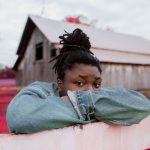
Connect to Joy Oladokun on
Facebook, Twitter, Instagram
Discover new music on Atwood Magazine
? © Nolan Knight
:: Stream Joy Oladokun ::

